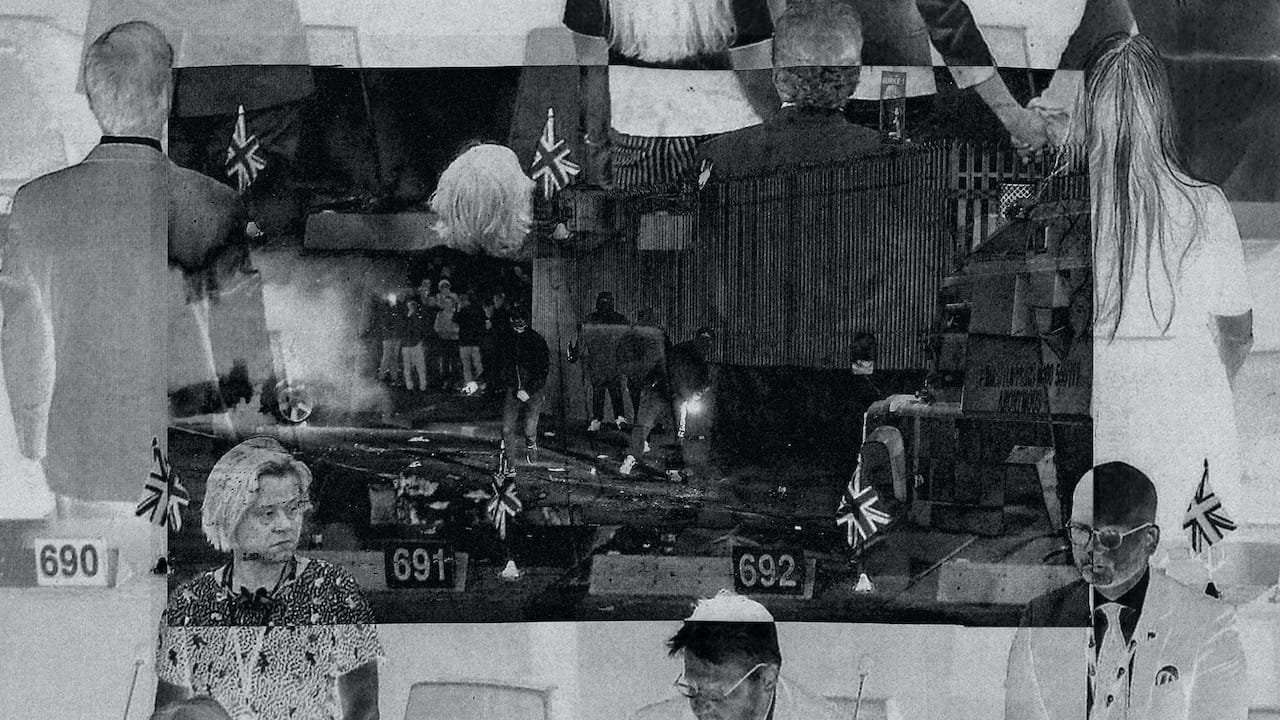ALT/KINO is covering the Experimenta strand of this year’s London Film Festival via a series of correspondences between Patrick Gamble and Sophia Satchell-Baeza. In the first of these messages, Patrick discusses some of the films in the programme ‘Some Say the Devil is Dead.’
A Sod State (Eoghan Ryan, 2021)
Dear Sophia,
I’m writing to you from a cafe in central London, surrounded by critics and film industry types discussing the Oscar chances of this morning’s gala screening. I always feel a little like an imposter at big festivals like this, and never really know how to participate in these conversations. Perhaps that’s why I’m drawn to Experimenta. I’ve always liked how this sidebar feels like an outlier in the festival program. There’s something endearing about the way these films refuse to be pigeonholed into the loose thematic strands like ‘love,’ ‘journey’ or ‘debate’, instead striving to challenge the arbitrary ways we categorise and define cinema.
This desire to dissolve boundaries was encapsulated by the films in the ‘Some Say the Devil is Dead’ program which features various perspectives on how the violent implementation of borders forces us to think about the world in binary terms. The program is named after an Irish republican song that features prominently in Eoghan Ryan’s A Sod State. A disjointed collage of news footage from Northern Ireland is punctuated by interviews with a confused Irishman and the pig-headed puppet that represents his inner turmoil. Ryan combines a disorientating cavalcade of techniques, be it transforming one of Ian Paisley’s rants about catholicism into a crucifix, or beat-matching the lights of police riot vans to The Rolling Stones’ Sympathy for the Devil to interrogate the role religion and the state have played in creating the binary contradictions that gnaw at the core of the Troubles. I’ve always been fascinated by how the conflict in Northern Ireland was depicted by the British media, and enjoyed Ryan’s focus on how being exposed to this constant narrative of violence has left a permanent scar across the island of Ireland.
The damage inflicted by British partition is also the subject of Larissa Sansour and Søren Lind’s As If No Misfortune Had Occurred in the Night. The film is constructed around the performance of an opera that combines the Arabic folk song Al Ouf Mash’al with Gustav Mahler’s Kindertotenlieder, in which the Czech composer set five poems from Friedrich Rückert’s Songs on the Death of Children to music. Filmed in a derelict chapel, soprano Nour Darwish sings of “a tragedy shared with those unborn” against a backdrop of archival material shot in Palestine during the First World War. Originally created as a three-channel video installation, striking black and white footage of Darwish’s performance is positioned amidst images of the War to recreate the elegiac tone of an altar triptych. The result is a sad, lonely lament for those displaced from their homeland by the British Mandate for Palestine in 1948.
Elsewhere, Beirut-based artist Lawrence Abu Hamdan’s The 45th Parallel encourages us to consider the absurdity of borders and their role in perpetuating violence. I’ve been following Abu Hamdan’s work ever since I saw his Earwitness Theatre exhibition at Chisenhale Gallery, and have been fascinated with his inquiries into the political effects of listening. His new film is shot inside the Haskell Free Library and Opera House, a unique municipal site straddling the Canadian and US border, between Quebec and Vermont. People from both countries can use the library. There are no visa checks at the door and for all intents and purposes the border vanishes once you step inside. The only rule is that you exit into the country you arrived from.
Structured as a series of monologues performed to camera by film director Mahdi FleifelIt, the film’s thesis centres around the Hernández vs Mesa judicial case, in which a US Border Patrol Agent killed an unarmed Mexican boy. Even though the gun was fired on US soil, the agent was eventually acquitted because his bullet crossed the border before killing the boy in Mexico. Judges were concerned that a prosecution could set a legal precedent that would leave the door open for the families of those accidentally killed by US drone strikes abroad to also seek justice through the US court system. By telling this story in the Haskell Free Library, where criminals smuggle handguns in the bathroom and Muslim families impacted by Trump’s travel ban use Canadian visas to meet-up with their loved ones, Abu Hamdan creates a space where we can question the facile dichotomies and ridiculous nature of these borders.
That’s all from me for now. I hope you’re having an enjoyable festival and I look forward to hearing all about your discoveries.
Until next time,
Patrick
The 2022 edition of London Film Festival runs from 5 - 16 October
Patrick Gamble is a writer on film and culture, whose work has featured on Hyperallergic, BFI, Calvert Journal and Kinoscope. Further links to his writing can be found at patrickgamble.contently.com.

